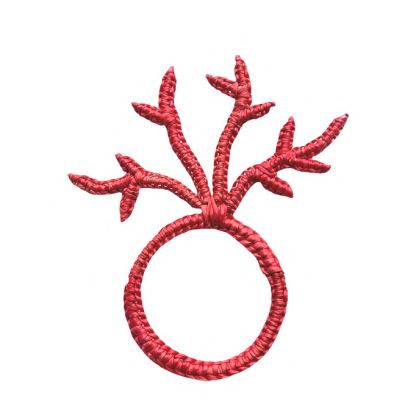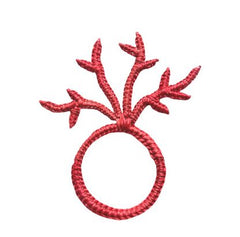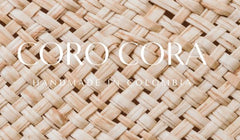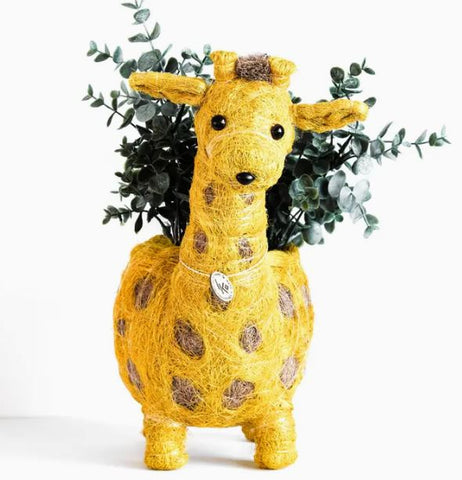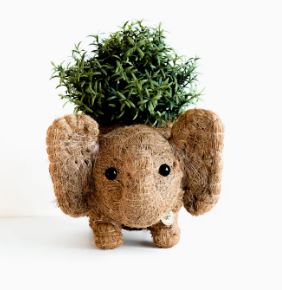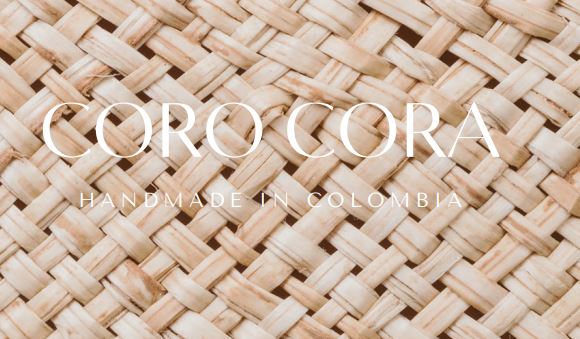Coral Palm Napkin Rings Set
$ 20.00 $ 28.00
These stunning and unique napkin rings are made by artisans from Usiacurí, a vibrant town on the Caribbean coast of Colombia. Using a traditional technique that has been passed down through generations, the process begins by shaping a wireframe, over which they weave intricate patterns with Iraca palm. The result is an exceptionally detailed work of art that will elevate any table setting.
It is 100% made of Iraca Palm straw, handmade and will leave no trace in the environment. By buying this item, you are helping the women artisans to keep their traditions alive and finance a way for them to have a better life.
All of our items are handmade from natural fibers. Please allow for any color and sizing variations, or natural imperfections created during the hand making process
- Material: Iraca Palm
- As is the case with all handmade items, slight variations will occur
- Handmade in Columbia
- Sold as a Set of 2
- Fair Trade, Sustainable
- Care: Wipe clean
About Coro Cora
Maria and Laura, a mother-daughter duo from Bogota, Colombia are the founders of Coro Cora. At Coro Cora they aim to support Colombian artisans by blending their wonderful craftsmanship with modern design. They work closely with weaving cooperatives around Colombia to create beautiful and versatile accessories and homeware that celebrate the vibrancy of and richness of our country. They strongly believe in sustainable and slow consumption and aim to create a lasting social change in the communities they collaborate with. They work mainly with women artisans and their goal is to empower them and ensure they receive a sustainable income for themselves and their families. All of their products are also 100% handmade, using mostly natural fibers with minimal ecological footprint. This is their world! Welcome to their shop and thank you for your support.
The Process
The toquilla palm is the source of the iraca palm straw. The straw is extracted from the leaf. The leaf is torn and ripped, leaving the strips of straw which are then ripened to remove the fibers. The strips of straw are bundled and boiled and are then hung on ropes and/or wires and left to drain and dry in the sun.
Before completing the drying process, each bundle is battered using the palm of the hand; a technique that is used to prevent tangling, thereby separating each strand of straw during the drying process. The bundles of straw are then left to continue air drying for 2 to 3 days in the sun.
After this process, the bundles of straw are placed in clay ovens and/or wooden stoves for several hours and are subjected to a bleaching process using sulphur. This is mainly handled by the palm ripper and the process is often undertaken within their homes.
Once the straw has undergone the aforementioned process, the straw is hand dyed on the kitchen stove in the weaver’s home. After the weaver has dyed the straw, the straw is hung in bundles to air dry for several hours. Each placemat is then hand woven and takes approximately 1 to 3 days to weave. After this, the placemats are hand pressed, molded and finished.
Each placemat holds its own unique story. They are individually dyed and crafted by the artisans, which means that the color variant hold its own differentiated characteristics. No two placemats are ever the same!

